Research & Innovation in Computer Science & Bioinformatics
RESEARCH FEST 2018
Computer Science Graduate Course Council (CSGCC)
&
Department of Computer Science, University of Saskatchewan

Computer Science Graduate Course Council (CSGCC)
&
Department of Computer Science, University of Saskatchewan

Research Fest 2018 has been organized by the Computer Science Graduate Course Council (CSGCC) partnered with the Department of Computer Science celebrating research done by graduate students. Our goal is to bring together graduate students, faculty members, researchers and practitioners from academia and industry to discuss and present the research and innovations in different areas of Computer Science and Bioinformatics. Research Fest 2018 invites high quality contributions describing significant, original, published and/or unpublished results. Solicited topics include, but are not limited to:
| Abstract submission: | August 15, 2018 |
| Author notification for abstract: | September 1, 2018 |
| Final poster and revised abstract submission: | September 15, 2018 |
| Poster presentation and award ceremony: | October 1, 2018 |
Those interested in participating should submit their abstract using Google Forms. The abstract should highlight your research problem, methodology and experimental findings in at most 300 words. Once the abstract is accepted by the review panel, you can submit the poster through through email by sending the link to the poster or an attachment.

|
Kevin Stanley Kevin Stanley is Department Head, and an Associate Professor in the Department of Computer Science at the University of Saskatchewan. His primary research interest is in building technology to measure, analyze and act on sensed human behaviour. He collaborates with health and social science researchers as user communities, measuring and modelling human behavior using smart phones including, but not limited to fundamental metrics of spatial temporal behaviour, improved Ad-Hoc networks based on behaviour models, health applications of human behavioural models, and novel input and mechanic modalities for mobile games He is also the lead instructor for the new CS Early Start program which allows talented high-school students to get a head start on their Computer Science degree. |
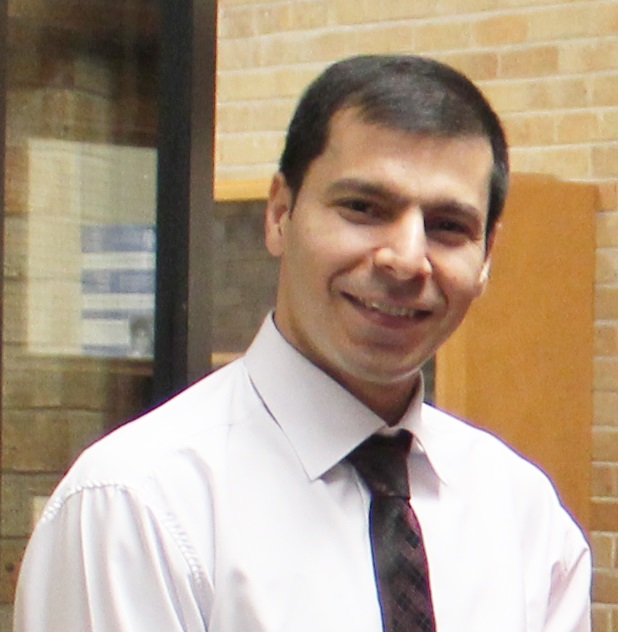
|
Farhad Maleki Farhad Maleki is a Ph.D student in Computer Science at the University of Saskatchewan. He has been president of the CSGCC for the past three years and has been the lead organizer of Research Fest. His research interests include various topics in computational biology such as applying machine learn and statistical data analysis to gain insight from biological data. He has also worked on methodology and application of evolutionary algorithms and swarm intelligence. His current research involves gene set analysis. |
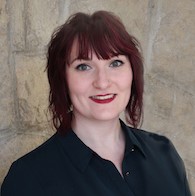
|
Sophie Findlay Sophie Findlay is originally from Saskatoon Sk. She received his B.A with Honours at the University of Saskatchewan in 2011. She then went on to receive her M.A from Sheffield University in 2012. After working with a research group in Sheffield for several years she returned to Saskatoon, where she now acts as the Graduate program Assistant on the Department of Computer Science. |
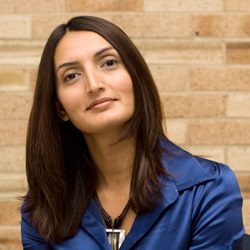
|
Shakiba Jalal Shakiba Jalal is the Operations and Programs Manager in the Department of Computer Science at the University of Saskatchewan, where she also has a Master degree in Biochemistry, and a Bachelor degree in Computer Science. |

|
Katie Ovens Katie Ovens is a Ph.D student in Computer Science at the University of Saskatchewan. She was one of several VP Social CSGCC members last year responsible for organizing social events to connect graduate students. She is currently VP Finance for the CSGCC. |

|
Daniel Hogan Daniel Hogan is a PhD student in Computer Science at the University of Saskatchewan. He has a BSc in Engineering from the University of New Brunswick and an MSc in Computer Science from the University of Saskatchewan. His research interests include the development of statistical and machine learning techniques for immunological data. Daniel has been a CSGCC Social Representative since 2015. |
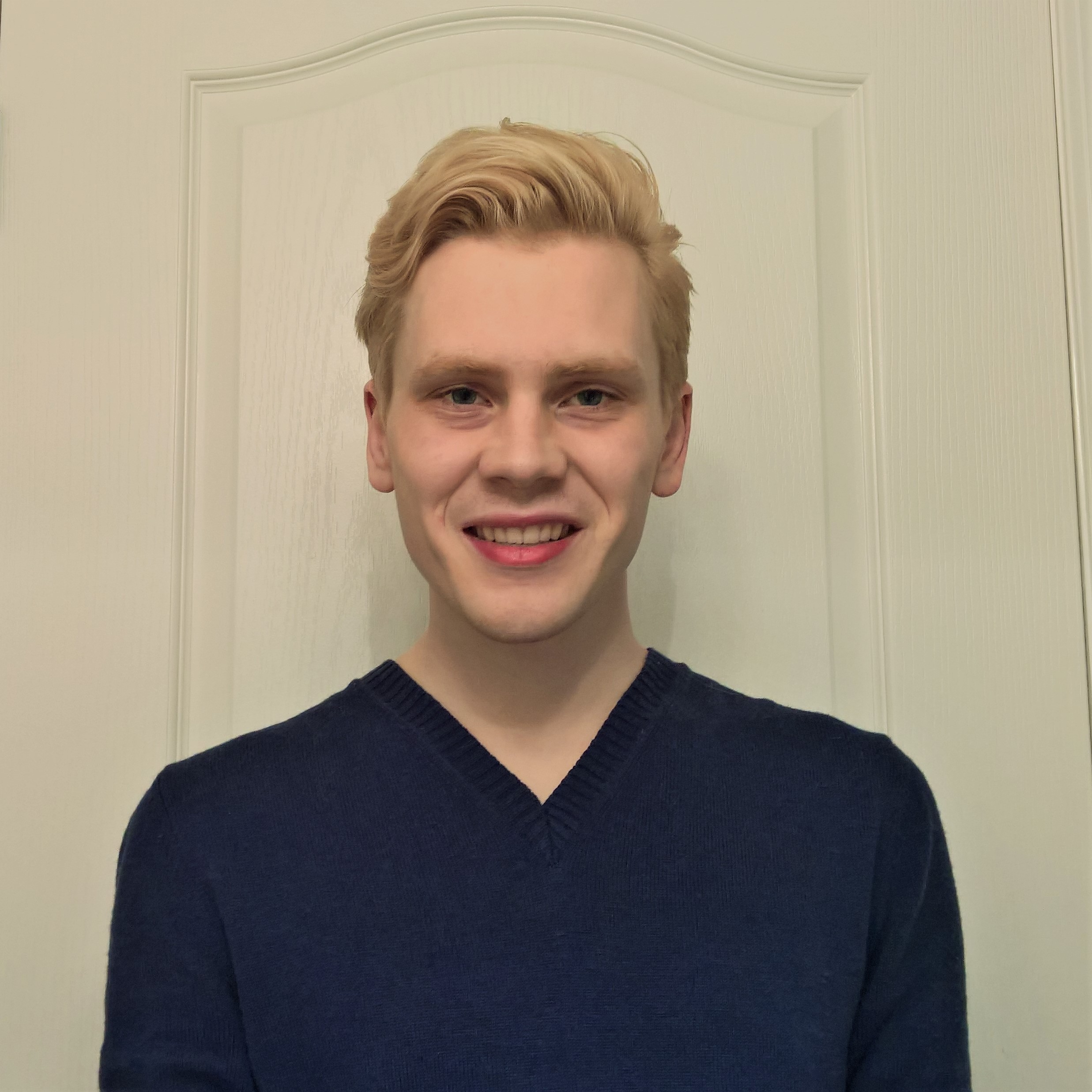
|
Matthew Miller Matthew Miller is a Ph.D. student in The Interaction Lab at the University of Saskatchewan. He has served as M.Sc. Representative, VP Internal, and was recently elected President of the CSGCC. His research focuses on how computers support communication through video, specifically around video chat and live streaming. He uses multiple methodologies to understand how people’s communications are affected by modern communication tools. |

|
Johannes Lindenbaum Johannes studied Computer Science at the U of S. He joined early-on in 7shifts and helped grow the operations from a team of 3 to over 50. His main interested is DevOps and works with a talented team of local developers to keep 7shifts running and enable managers to schedule over 200,000 restaurant employees every month. |

|
Kevin Sookocheff Kevin is a Lead Architect of Workiva's Infrastructure & Reliability group. His interests include distributed systems, cloud computing and systems architecture. |

|
Thian-Peng Ter Thian-Peng is a Senior Product Development Manager at Workiva. Besides learning about software development and cloud computing technology as an engineer, he loves helping others become successful and enjoy what they do. |

|
Erik Frederiksen Erik Frederiksen is the Chief Technology Officer of NC Smart Call, a Saskatoon-based startup that is working to improve health care outcomes in Canada by developing software to fill health care staff absences faster and earlier. He is a University of Saskatchewan alum, with a dual degree in Computer Engineering (CME) and Computer Science (CMPT). |

|
Mark Eramian Mark Eramian is an Associate Professor in the department of Computer Science at the University of Saskatchewan. His research interests are contained within the broad areas of image processing and analysis, image segmentation, and computer-assisted diagnosis. He also teaches classes in image processing, computer vision, and data structures and algoirthms, and introductory programming. |

|
Eric Neufeld Eric Neufield is a Professor in the Department of Computer Science, University of Saskatchewan. After completing his B.Sc., he has worked with Charles Colbourn, studying uniformly sparse graphs. He then investigated aspects of nonmonotonic reasoning with David Poole and Romas Aleliunas, in a then-new area known as 'uncertainty in AI', including the subarea of causality. He has also always had an interest in computer graphics, and pursued several visualization projects. During the heydey of the iPhone and iPad, he became interested in mobile computing, and was able to combine all three interests in a piece of software called iCausalBayes. |

|
Jeff Long Jeff Long obtained his B.Sc. and Masters degrees from the University of Saskatchewan and his Ph.D. from the University of Alberta. He may also be known as "the Cookie Monster guy" due to the stuffed furry toys that invariably accompany him to his classes. His research background is in Artificial Intelligence and creating computer players for traditional games of skill. He currently works and teaches in the Department of Computer Science at the University of Saskatchewan. |
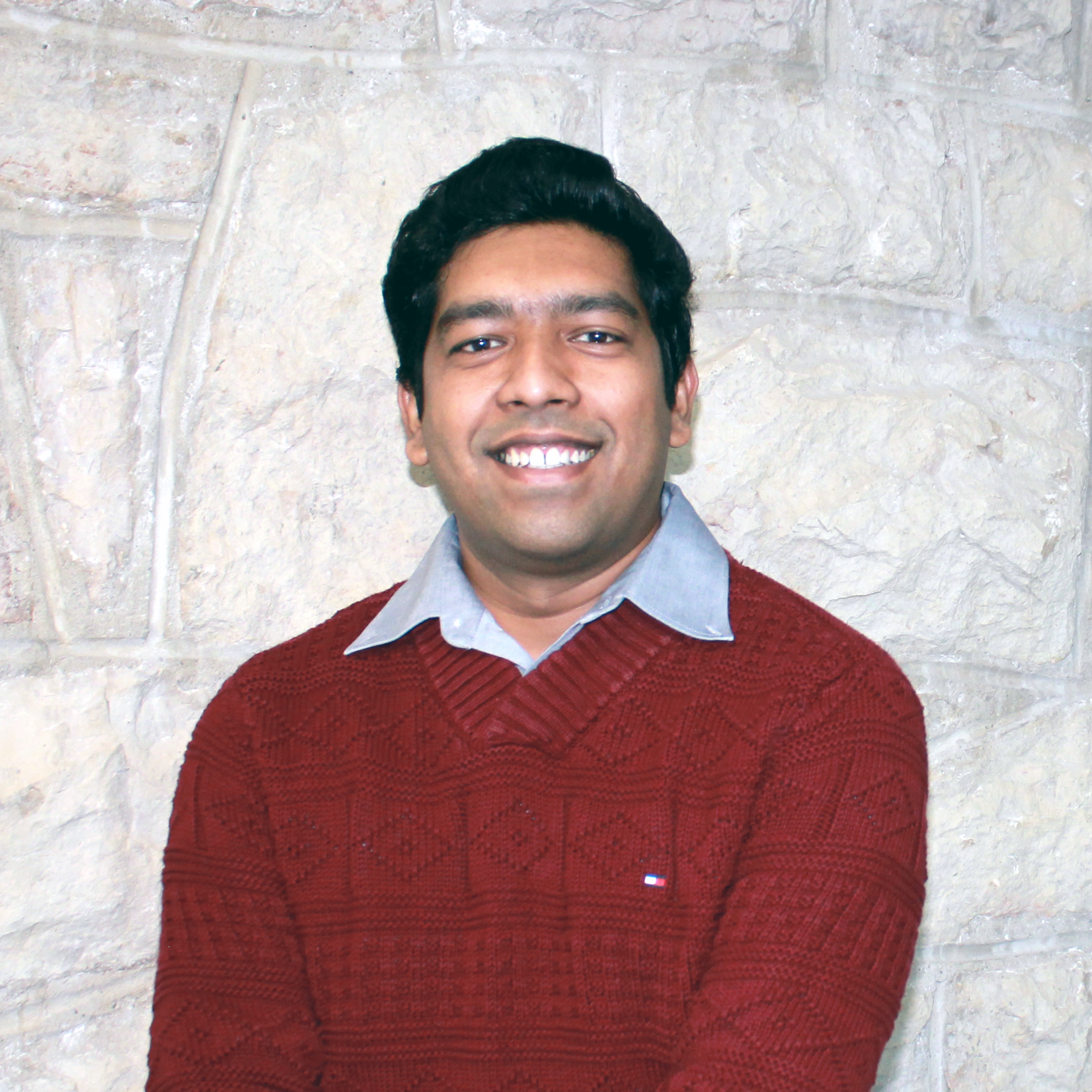
|
Debajyoti Mondal Debajyoti Mondal is an assistant professor at the Department of Computer Science, University of Saskatchewan. His research interests include large network visualization, visual analytics, cartography and computational geometry. Before joining the University of Saskatchewan, Debajyoti was an NSERC postdoctoral fellow at the University of Waterloo. He received his PhD in Computer Science from the University of Manitoba in 2016. He received a number of prestigious scholarships and awards during his PhD such as Manitoba Graduate Scholarship, Clarence Bogardus Memorial Scholarship and Microsoft Research Intern Award. His work appeared in several premier venues including GD, ESA, and ICALP. |
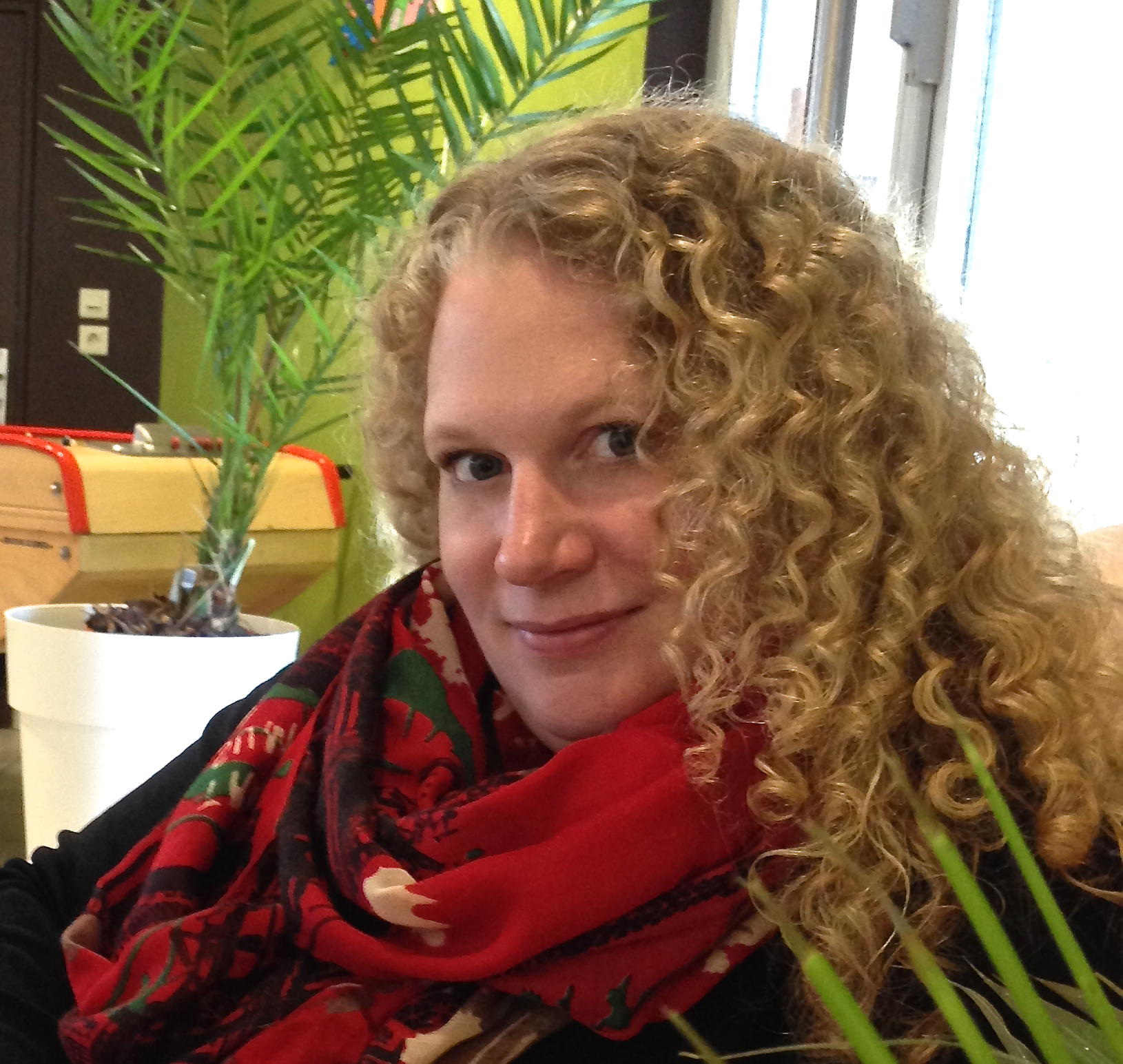
|
Regan Mandryk Regan L. Mandryk is a Professor of Computer Science at the University of Saskatchewan, in Canada. She pioneered the area of physiological evaluation for computer games in her Ph.D. research on affective computing at Simon Fraser University with support from Electronic Arts. With over 100 papers that have been cited collectively over 4200 times, she continues to investigate novel ways of understanding how people experience interactive technology in partnership with multiple industrial collaborators, but also develops and evaluates games for health (including for special populations such as children with neurodevelopmental disorders and the elderly), interactive technology that fosters interpersonal relationships, and novel interaction techniques. She has been the invited keynote speaker at three international conferences, led the Games research theme in the Canada-wide GRAND Network Centre of Excellence, was the papers chair for the inaugural CHI PLAY conference (and again in 2015, is the technical program chair for 2016, and sits on the steering committee), and is leading the new games subcommittee for SIGCHI. |
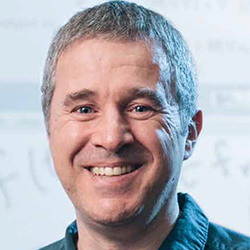
|
Raymond Spiteri Raymond Spiteri is a professor in the Department of Computer Science at the University of Saskatchewan. He obtained a Ph.D. from UBC in Mathematics (Institute of Applied Mathematics) in 1997. He obtained a B.Sc. (Hons.) in Applied Mathematics (Theoretical Physics) from UWO in 1990. His areas of research are numerical analysis, scientific computing, and high-performance computing. As a numerical analyst, he has been afforded the luxury of being able to be an equal opportunity employer. He actively collaborates with physicists, chemists, geologists, and engineers of various flavours. He also has a long record of industry collaboration with companies, both large and small. His current applications include simulation of electrical activity in the heart, error correction for quantum computing, fuel cells, and criminology. Prof. Spiteri is also the Past-President of the Canadian Applied and Industrial Mathematics Society and Chair of the Applied Mathematics stream of NSERC Evaluation Group 1508. He was Principal Investigator for Saskatchewan and member of the Executive Committee for the WestGrid High-Performance Computing Consortium from 2005 to 2014. He held the position of Mitacs Regional Scientific Director for Alberta, Saskatchewan, and Manitoba from 2008 to 2012. He was also a Mitacs Project Leader from 2004 to 2012. |

|
Brett Trost Brett Trost received his B.Sc. in bioinformatics and his M.Sc. and Ph.D. in computer science from the University of Saskatchewan, and is currently a postdoctoral fellow at the Hospital for Sick Children in Toronto. He is the recipient of numerous prestigious awards, including the Banting Postdoctoral Fellowship, and was recently selected as one of approximately 600 young scientists worldwide to participate in the 68th Lindau Nobel Laureate Meeting, which was attended by nearly 40 Nobel Laureates. |